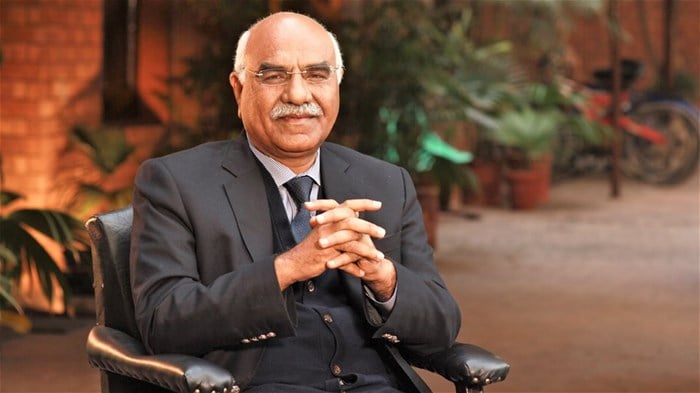
Subscribe & Follow
Advertise your job vacancies
Jobs
- Creditors Clerk/Accounts Assistant Stellenbosch
- F&I Manager Centurion
- Junior Administration Clerk George
- Bookkeeper/Tax Accountant George
- Assistant Finance Manager Johannesburg
- Senior Bookkeeper Somerset West
- Credit Analyst Rosebank
Nobel prize nominee offers lessons in ethical micro-financing
Ethical micro-financing whereby interest-free loans are offered to the poor will help ease South Africa's triple challenges of inequality, poverty, and unemployment.

Dr Amjad Saqib
This was the gist of the message by Nobel Peace Prize Nominee, Dr Amjad Saqib, during a webinar hosted by Regent Business School.
Dr Saqib reflected on his role as the founder and director of the largest Pakistan-based interest-free micro-finance organisation, Akhuwat.
He said micro-financing is important as it provides financial assistance to the unemployed or low-income individuals who have no other access to financial services.
“There are too many financial institutions that want to enrich those who are rich and have security. What about the poor people who have no security or collateral? Who will provide banking for the unbanked?”
“There are many people who do not want to steal or beg because they want to keep their dignity intact. Where will they get a loan from?”
“Our form of micro-financing can best be described as a benevolent loan. We offer people interest-free loans. We create a pool of money from rich people and act as custodian of funds used to lend to the poor.”
He said people in South Africa borrow money from friends and family without interest. Banks should do the same.
“Why should underprivileged people face high interest fees when they already have the burden of being deprived in the country?”
“Poverty is a multi-dimensional concept: social, political and educational. It is anybody who does not have self-respect; anybody who does not enjoy equal political rights; and anybody who does not have a roof over his or her head.”
Dr Saqib said development programmes should focus on the traditions and the culture of society. They must not be divorced from the local history, local institutions and local culture of the people.
“The micro-financing blueprint of another country must not be adopted wholly. Countries must adapt a micro-financing model best suited to the local environment,” Dr Saqib said.
Regent Business School was established to satisfy the demand for management education in southern Africa.
- Shaping the future: Digitisation and sustainability in South Africa’s supply chains28 Nov 16:26
- Regent Business School launches new campaign for 2025 enrolments26 Nov 15:54
- Upskilling for strategic advantage: How higher education shapes tomorrow's workforce development09 Oct 14:54
- Maximising ROI in education: Aligning employee learning paths with corporate strategy09 Oct 13:36
- Regent Business School celebrates the exceptional achievements of its first cohort of DBA graduates09 May 15:09
Related
Shaping the future: Digitisation and sustainability in South Africa’s supply chains 28 Nov 2024 Regent Business School launches new campaign for 2025 enrolments 26 Nov 2024 Upskilling for strategic advantage: How higher education shapes tomorrow's workforce development 9 Oct 2024 Maximising ROI in education: Aligning employee learning paths with corporate strategy 9 Oct 2024 Building a strong personal brand in the digital age: Insights and strategies 18 Dec 2023 Celebrating 25 years of RBS - A legacy of excellence in higher education 2 Nov 2023







